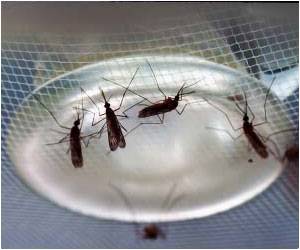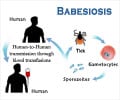These findings are important to understand how parasites persist in the brain and how this 'rewiring' affects behavior in both rodents and humans.

The parasite Toxoplasma gondii has infected an estimated one in four Americans and even larger numbers worldwide. Not long after infecting a human, Toxoplasma parasites encounter the body’s immune response and retreat to a latent state, enveloped in hardy cysts that the body cannot remove.
Before entering that inactive state, however, the parasites appear to make significant changes in some of the brain’s most common, and critical cells, the researchers said. The team, lead by William Sullivan, professor of pharmacology, toxicology, microbiology and immunology, reported two sets of related findings about those cells, called astrocytes, in PLOS ONE.
Astrocytes are found throughout the brain and are involved in a variety of important brain structures and activities. Sullivan and his team evaluated the proteins in astrocyte cells and found 529 sites on 324 proteins where compounds called acetyl groups are added to proteins, creating a map called an "acetylome", much like a map of all the genes in a particular species is known as its "genome". In addition, 277 sites on 186 of the proteins had not been reported in previous studies of other types of cells. This process of acetylation can alter the function, location or other aspects of those proteins in the cells, providing new insight into how these cells operate in the brain.
Having created the first acetylome for astrocytes, the researchers then found a significant number of proteins that were acetylated differently in brain tissue infected with Toxoplasma parasites.
"We don’t know the impacts of these changes yet, but these discoveries could be particularly significant in understanding how the parasites persist in the brain and how this ’rewiring’ could affect behavior in both rodents and humans," said Sullivan.
Intriguingly, and much more speculatively, both of them warn that some research has suggested that Toxoplasma infection could alter human behavior, and that changes could vary by gender. One study found that infected men tend to be introverted, suspicious and rebellious, while infected women tended to become extroverts, trusting and obedient. Others have suggested an association with schizophrenia.
Initial Toxoplasma infection generally causes symptoms similar to the flu, while the latent form of infection has little physical impact on healthy people. However, the parasites can become active again and cause tissue damage in people with compromised immune systems, such as patients receiving chemotherapy or infected with HIV. In addition, if a woman’s initial infection with Toxoplasma occurs while she is pregnant, miscarriage or birth defects can result.
Humans can become infected if they don’t wash carefully after collecting cat litter containing Toxoplasma. Gardens and other areas frequented by wild and feral cats can become reservoirs for Toxoplasma, so experts recommend using gloves and masks when working in such areas. Unwashed vegetables and undercooked meats can also lead to Toxoplasma infection.
Source-Medindia
 MEDINDIA
MEDINDIA




 Email
Email





